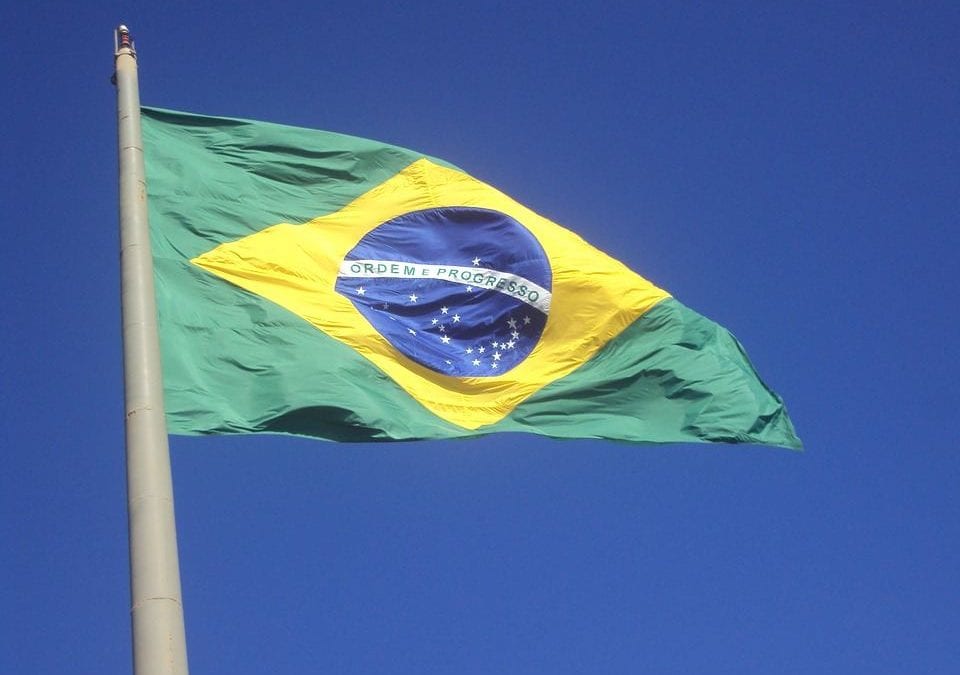By Jessie Bullock
The Global Anticorruption Blog’s Jessie Bullock looks at whether Brazil could be about to elect their own version of Donald Trump.
Will Brazil get its own Donald Trump? Brazil’s next election is right around the corner (the campaign starts August 16, and first round elections are October 2) but currently Jair Bolsonaro — a right wing, pro-gun rights, anti-gay firebrand who has proudly branded himself the “next Donald Trump”— is polling first among eligible candidates, trailing only former president Lula Inácio de Silva—who as of now is not actually allowed to run due to his conviction on corruption charges — and the “null option” (that is, none-of-the-above). What explains Bolsonaro’s appeal? In large part, the issue of corruption. Revelations of graft and bribery have continued to pile up in Brazil over the last few years — most notably (though not exclusively) in connection with the so-called Car Wash investigation of corruption in Brazil’s state-owned oil company, which may have involved upwards of $5 billion in stolen public funds. These corruption scandals have already led to the impeachment and removal of former President Dilma Rousseff, criminal charges against the current President Michel Temer, and the conviction and imprisonment of former President Lula. Given all this, it’s little wonder that in a recent poll, corruption was ranked as the most important issue for 62% of Brazilian citizens.
Much as Donald Trump pledged to “drain the swamp,” Bolsonaro has centered his campaign on the issue of corruption. He asserts that he is the only candidate in the election who has not engaged in some form of corruption or white collar crime. Of the five major presidential candidates, he’s the only one who is not either from a major party that has been mired in a recent corruption scandal, or been part of a coalition with one of those tainted parties. (Bolsonaro’s party, the PSL (Social Liberal Party) is small, barely present at the national level, and he is advertising his status as a political outsider as one of his appeals.) Thus Bolsonaro has presented himself as the only candidate who will usher in a new, less corrupt era for Brazil.
This places some Brazilian voters who care deeply about corruption in a difficult situation. Many Brazilians may feel like their only alternative to perpetuating a corrupt system is to take a gamble on a disruptive figure like Bolsonaro. Indeed, at a recent campaign event, supporters cited his aggressive anticorruption and anti-crime stances as the principal reasons why they were planning to vote for him. Diehard supporters aside, it’s possible that some Brazilian voters who are not totally comfortable with Bolsonaro might nevertheless be swayed by his outsider persona and his aggressive attacks on Brazil’s current political class. For those who have followed U.S. politics over the past few years, this probably sounds disturbingly familiar—and indeed seems to fit into a now-recognizable pattern, also manifested in the Philippines’ 2016 election of populist, zero-tolerance Duterte. It’s precisely that similarity that should, and I hope will, give these on-the-fence Brazilian voters pause.
A vote for Bolsonaro is not a vote for anticorruption. Given the experience of other countries, there are strong reasons to doubt that a Bolsonaro regime would be less corrupt, or less inclined to abuse its power, than previous Brazilian administrations. Just consider the similarities between Bolsonaro and that of other populist politicians like Donald Trump, Rodrigo Duterte, Silvio Berlusconi, Alberto Fujimori, and Joseph Estrada —who campaigned as outsiders but abused their power outrageously once in office. Furthermore, disruptive populist leaders in this mold often weaken the political institutions around them, thereby creating new opportunities for abuses of power. Indeed, this is a global pattern, and is already underway in Brazil.
In a television interview on July 30, Bolsonaro took a page from Donald Trump’s playbook and attacked the electoral system, saying the elections this year are “under suspicion” and “susceptible to fraud.” Calling into question the legitimacy of the elections before they are even underway is a warning sign of potential populist expansion of power when in office. What we see happening now in the United States, as detailed in Steven Levitsky and Daniel Ziblatt’s book How Democracies Die, is that populist autocrats continuously violate democratic norms and work to undermine democratic institutions such as the electoral system. The ability of a country to constrain a leader like this depends on the institutional strength of the democratic system – stronger countries like the United States may be able to withstand multiple blows to their institutions from an autocratic leader, while other countries will crumble. Brazil’s economic and political institutions are weak right now due to the struggling economy and slew of corruption scandals. I doubt that these institutions would be able to withstand repeated attacks from the president. While this does not assure that Bolsonaro will be corrupt while in office, it is a warning that the door may be wide open for him to do so if he chooses.
Is it possible that, if elected, Bolosano might actually follow through on his promise to fight corruption? Sure. But it’s a big gamble, and the historical precedents are not encouraging. As the election approaches, it will be important for Brazilian voters will remember that when it comes to corruption, no candidate is risk-free: the risks are just better known for some candidates than for others.
This article was originally published on the Global Anticorruption Blog and was republished with permission. For the original, click here.
Disclaimer: The ideas expressed in this article reflect the author’s views and not necessarily the views of The Big Q.

